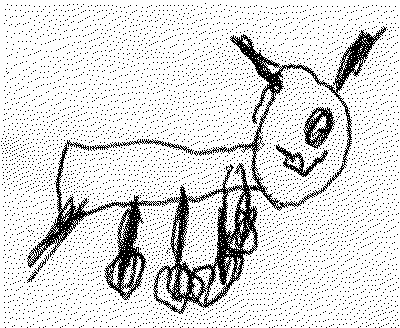
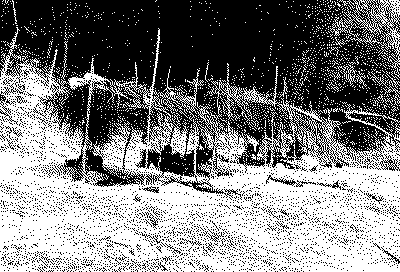
Acampamento Pirahã, próximo a Transamazônica. Rio Maici. Foto: Ezequias Hering, 1981
For almost all of us, we experience the world first through our mother. All that we touch, taste, hear, smell, see, and eventually come to know and understand begins with her and is mediated by her. As we develop of course we notice others close to our mother - our father, siblings, and others. But until our first experiences as individuals begin outside the home, our values, languageM, and ways of thinking all result from interactions with our mother and the select small group she is part of. These early apperceptions shape our subsequent lives. They lead not only to an individual sense of identity but also to a conception of what a ‘normal identity’ is. This is all very comfortable. We learn early on that new behavior and new information entail effort. Why listen to dissonant jazz when the steady 4/4 beat of country or rock is familiar? Why eat haggis instead of pot roast? Comfort food is just food that requires no gaining of acquired tastes. Why learn another language? Why make friends of a different color, a different sexual orientation, or a different nationality? Why should a professor make friends with a cowboy? These efforts go against the biological preference for expending as little energy as possible and maintenance of the status quo. The work of learning about otherness is worthwhile, but this is not always obvious initially.

The Pirahã language challenges simplistic application of Hockett's nearly universally accepted design features of human language by showing that some of these features (interchangeability, displacement, and productivity) may be culturally constrained. In particular, Pirahã culture constrains communication to nonabstract subjects which fall within the immediate experience of interlocutors. This constraint explains a number of very surprising features of Pirahã grammar and culture: the absence of numbers of any kind or a concept of counting and of any terms for quantification, the absence of color terms, the absence of embedding, the simplest pronoun inventory known, the absence of "relative tenses," the simplest kinship system yet documented, the absence of creation myths and fiction, the absence of any individual or collective memory of more than two generations past, the absence of drawing or other art and one of the simplest material cultures documented, and the fact that the Pirahã are monolingual after more than 200 years of regular contact with Brazilians and the Tupi-Guarani-speaking Kawahiv. Source
In 1990, accompanied me to several villages in order to conduct a pilot study of language learning among . We set up cameras on a hut, in full view, with the permission of its occupants, and started filming. We both were in the film, talking to the adults about their beliefs and children's behavior. After we were done filming, we noticed something that we had not seen before, because it was happening behind us. A toddler, perhaps a year and half old, was playing with a sharp kitchen knife with a 30cm blade. He was swinging it nonchalantly, almost stabbing himself in his face, legs, and midsection; occasionally swinging it close to his mother's face and back. We initially assumed that the mother didn't see her toddler's dangerous toy. But then, as she was talking to another woman, the camera recorded the baby dropping the knife and starting to cry. Barely glancing backwards at her child, the mother casually leaned over, picked the knife up off the ground and handed it back to the baby, who returned gleefully to his quasi-stabbing of himself. This was a confrontation of valuesP for Peter and myself, underscoring the otherness divide between the and us. Wasn't the mother concerned about her child's welfare? She was indeed. But to the a cut or non-life-threatening injury is the price that occasionally must be paid in order to learn the skills necessary to survive in the jungle. Would a Dutch mother give her child a sharp knife as a toy, believing that any piercing of the child's flesh would be compensated for by its contribution to the child's development? Could she even respect this other (m)otherness - the otherness at the root of our lives?

Daniel Everett's first annotations on Pirahãs spoken language, July 1995
When I first encountered the , I learned the language by pointing and giving the name in English. I would pick up a stick and say, "stick." The , most of them anyway, would give me the translation in their languageT. Then I might let the stick drop to the ground and say, "the stick falls to the ground" or, "I throw the stick away" or, "two sticks drop to the ground," and so on. I would transcribe the responses and say them back at least three times to the speaker, making sure I had them right. I was able to follow their translations and also write down their comments. But the occasional speaker would ignore my request and instead say something that turned out to be even more interesting. Ɂaooí Ɂaohoaí sahaɁaí ɁapaitíisoɁabaɁáígio hiahoaáti, which means: "Do not talk with a crooked head. Talk with a straight head." The wanted me to talk like a person, not like a bizarre foreigner. Like an American tourist in France, the Pirahãs could not understand why I couldn't speak their language. Then one day a missionary plane had brought us some supplies in the jungle. Among those was lettuce. I was so excited to have greens. The eat no greens and think of them as worm food. I was cheerfully eating lettuce from a bowl when a friend walked up and said, "That's why you don't speak yet. We don't eat leaves."
In other words, the man believed that language emerges from culture as well as the entirety of our behavior as members of a society. This is a belief I have come to as well. They felt we could not learn their language at native level unless we became also part of their culture; and native level is what matters to them, there are no prizes for merely speaking their language intelligibly. This was against everything I had been taught about language in university courses, and it underscored the gap between them and me. Languages and cultures interact symbioticallyM, each affecting the other. Our sense of self and of society emerges from our enveloping culture and from the language and accents we hear most during our childhood developmentL. The speed of our conversations and the structures of our interactions with others are formed in local communities of people like ourselves. The most comfortable conversations are with people who sound like you, put their phrases together as you do, and who reach similar conclusions.
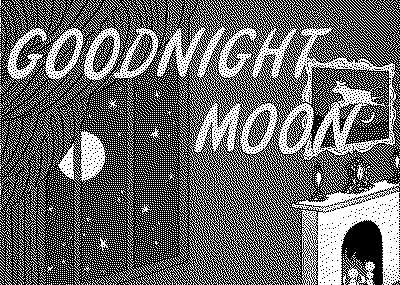
The phrase “good night” is ingrained in our cultural lexicon. These two words start out playing an essential role in early childhood by way of soothing and rhythmic classics such as Goodnight Moon and Good Night, Gorilla. They are often the last words we hear our parents whisper to us before we fall asleep. Among adults, they’re taken for granted as a universal social signifier — a way to wish our friends and family a restful sleep, or a pleasantry upon our departure from a social evening out, no matter where in the world we are. For Pirahãs, there are no words for “good night.” This anomaly was first noted by linguistics professor Daniel Everett in his fascinating book, Don’t Sleep, There Are Snakes. In fact, the title itself echoes the words used by tribe members before they settle down for sleep.
The Pirahãs say different things when they leave my hut at night on their way to bed. Sometimes they just say, “I’m going.” But frequently they use an expression… ”Don’t sleep, there are snakes.” The Pirahãs say this for two reasons. First they believe that by sleeping less they can “harden themselves,” a value they all share. Second, they know that danger is all around them in the jungle and that sleeping soundly can leave them defenseless.
Indeed, their sleep pattern is unlike that in the modernized world. It’s common for tribe members to sleep for just an hour or two and then go about their activities, sleeping again when they get tired.
“During the night it is rare, though not unheard of, for the entire village to be silent,” Everett says. “Usually, there will be some sleeping and some playing, some talking, some laughing all night long. There simply are no culturally defined sleep periods among the Pirahã.” Which could explain why it wouldn’t make sense to wish someone a good night if he or she were only lying down for a brief rest. Source
There are many ways in which we confront otherness. Strangers are not always people. Nature is often a foreigner to most of us and we can learn by submitting ourselves to it. One reason that I annually read the American Henry David Thoreau's Walden, my favorite book in all of American literature, is that Thoreau was so articulately different from me. That is irrelevant to Thoreau's account of his year alone. His year was a brilliant experiment. Thoreau did not remain at Walden. He returned to take up a fairly boring life as a handyman in the adjacent city of Concord, Massachusetts. Yet, the book he wrote is full brilliant observations based on the concepts of American Transcendentalism: the idea that people and nature are inherently good and that they are best when left alone by society and its institutions. Transcendentalism implies that as we come to know ourselves and remove the otherness of nature by experiencing it with all our senses. That our sense of onenessA with others, as embodied in that very nature, grows. Thoreau's insights into his lessons from nature – as the stranger - teach us about what it means to live as a human, to be independent, and to occupy a part of the natural world. Through Thoreau we encounter the strangeness of a solitary life in nature. Oneness with ourselves and nature – and the others that are strange to us but are, like us, just part of nature – requires slow work of contemplation and experience that at once embraces the otherness of nature. It demands working towards removing this sense of otherness and embracing it as part of the oneness that we seek with the worldE around us.
Otherness, as I see it, is the spark of original thought and greater appreciation of natureL, while the sense of oneness is the paradoxical goal of encounters with otherness. We need a sense of oneness of ourselves with nature to clearly see otherness, and we need otherness to build a more encompassing and panoramic sense of self and oneness with the world. Thoreau ignored society to know himself. Most of us ignore ourselves to be part of society. Thoreau eloquently expressed the loss that, being carried away by the demands of others and society, brings us to our sense of self. We think of conformity rather than our own unique identity and so blur who we are as individuals. Thoreau captured this well when he exclaimed that, "the one is more important than the million." That is, it is only as we each individually appreciate our oneness with the world, nature, and the other as part of this oneness that we can achieve the best individual life, and thus society.
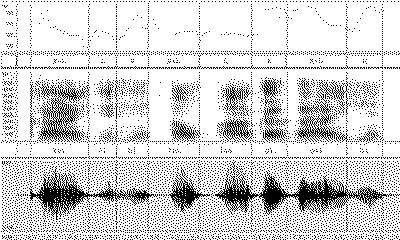
Thoreau’s hut Walden stands still as light in the heart of the forest, a small cabin where one can sit and think and read and wonder about the reasons for living. Jungle nights were this light in my life, as I sat around campfires, talking in a language that was so hard for me to learnP. Albert Camus said that the biggest mystery of philosophy is why not everyone commits suicide when honestly contemplating the futility of life. As a possible answer to his own question, Camus in his essay The Myth of Sisyphus, held up poor Sisyphus [^2] as an example of a good life. Sisyphus, after all, had an objective, one that entailed a measurable daily activity that always ended in the accomplishment of getting that rock up the hill. But Thoreau perspective rejects Camus's analysis. He saw no reason to count familiarity or predictability of social life, foods, or accomplishments as among the goals of life. They teach us little and change our behavior insignificantly. His example was that we learn most when we insert ourselves as aliens in new conceptual, cultural, and social environments (in his case, the absence of society). I am convinced that our lives become richer when they are less predictable. This is not to say that our lives are always predictable in the absence of the other. Otherness renders our expectations less fixed and requires more thinking, planning, and learning.
The would disagree. They believe that it is homogeneity that gives us comfort and keeps us strong physically and psychologically. Otherness vs. predictability, which is more desirable? In essence, we need both even if we’d construct a greater sense of oneness that embraces the unexpected. The two greatest forces of preserving and constructing cultures are imitation and innovationL. When our environments, culturally and physically, are constant, innovation is rarely useful. Like biological mutations, cognitive and cultural innovations are usually unsuccessful. The effort to invent will usually isolate us as strange and less successful than those who merely imitate. Failed innovation in a society that most values imitation emphasizes our own ‘otherness’ and provides us with little advantage. As environments change – such as the ecology of the Pleistocene that so shaped our Homo ancestors, climate change today, the shifting political boundaries, or the intrusion of others into our environment – innovation becomes a more important force, providing new solutions to new problems that imitation alone is unable to provide. The live in an environment that has changed little over the centuries. They value conformity and imitation over innovation. Consequently their language has changed little over time. Records of their culture and language from the 18th century show a people identical to the people we encounterU today, three centuries later.
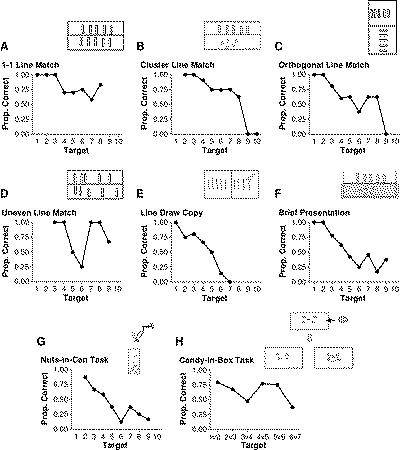
In environments that, especially culturally, change at light speed we need to learn to think, speak, act differently, and innovate in multiple areas simultaneously as the changes we encounter transform our familiar environment into ‘an other’. Every day brings problems that we never faced before. Diversity of experiences and encounters with others inspire new ways of thinking and new forms of living. If we all look the same, talk the same, value the same things, paint the same pictures, dance the same dances, and hear the same music then we are simply imitators falling behind the challenges of our world. This applies to all of us whether we are hunter-gatherers in the Amazon or advertising agents in New York City. It blinds us to new forms of beauty. What we see around us, with the rise of anti-immigration political movements in Europe and the USA is, at least partially, a fear of otherness. Our preference is for conformity and imitation; our fear then itself arises from that preference in contrast to otherness and the greater steps towards an ever more encompassing oneness of the type that motivated Thoreau. However, the ultimate engine of innovation is otherness – of people, food, environments, art, and culture – it strengthens us and prospers us.
Our languages and cognitive abilities expand as we learn new vocabularies and new values by talking to people and experiencing their relationships to natureR that are unlike our own. Human language emerged within the Homo line because it was the only creature to embrace otherness as to actively explore for the sake of exploration; to seek encounters with otherness. As Homo erectus sailed to islands beyond the horizon it invented symbols and language to cope with the greater need for communal efforts to expand experiences. Language change is an indication of cultural change (and cultural change will change language). Together, they amplify our species ability to innovate and survive. All that we are is the result of our human embrace of the other, the love of alterity that makes us distinct from all other creatures. Alterity is one of our greatest fears. And yet it should be our greatest treasure.
 Daniel L. Everett (USA) is a linguist and author best known for
his study of the Amazon Basin’s Pirahã people and their language.
His extensive writings about the experience of living among this
tribe and learning their culture and language – among which his
book Don’t Sleep, There Are Snakes: Life and Language in the
Amazonian Jungle, has been met with controversy among linguist,
biologists and other scientists worldwide. He has continued to
research language as a cultural tool and developed student guides
for linguistic fieldwork. Everett has taught at several universities
and since 2010 has been the dean of Arts and Sciences at Bentley
University. In 2016, the University of Chicago press published
Everett’s book Dark Matter of the Mind: the Culturally Articulated
Unconscious. His latest book How Language Began is an attempt to
trace back and tell the history of the origin and nature of language
(coming Fall 2017).
Daniel L. Everett (USA) is a linguist and author best known for
his study of the Amazon Basin’s Pirahã people and their language.
His extensive writings about the experience of living among this
tribe and learning their culture and language – among which his
book Don’t Sleep, There Are Snakes: Life and Language in the
Amazonian Jungle, has been met with controversy among linguist,
biologists and other scientists worldwide. He has continued to
research language as a cultural tool and developed student guides
for linguistic fieldwork. Everett has taught at several universities
and since 2010 has been the dean of Arts and Sciences at Bentley
University. In 2016, the University of Chicago press published
Everett’s book Dark Matter of the Mind: the Culturally Articulated
Unconscious. His latest book How Language Began is an attempt to
trace back and tell the history of the origin and nature of language
(coming Fall 2017).